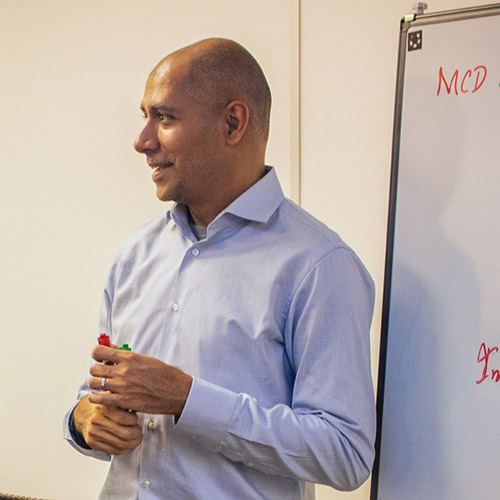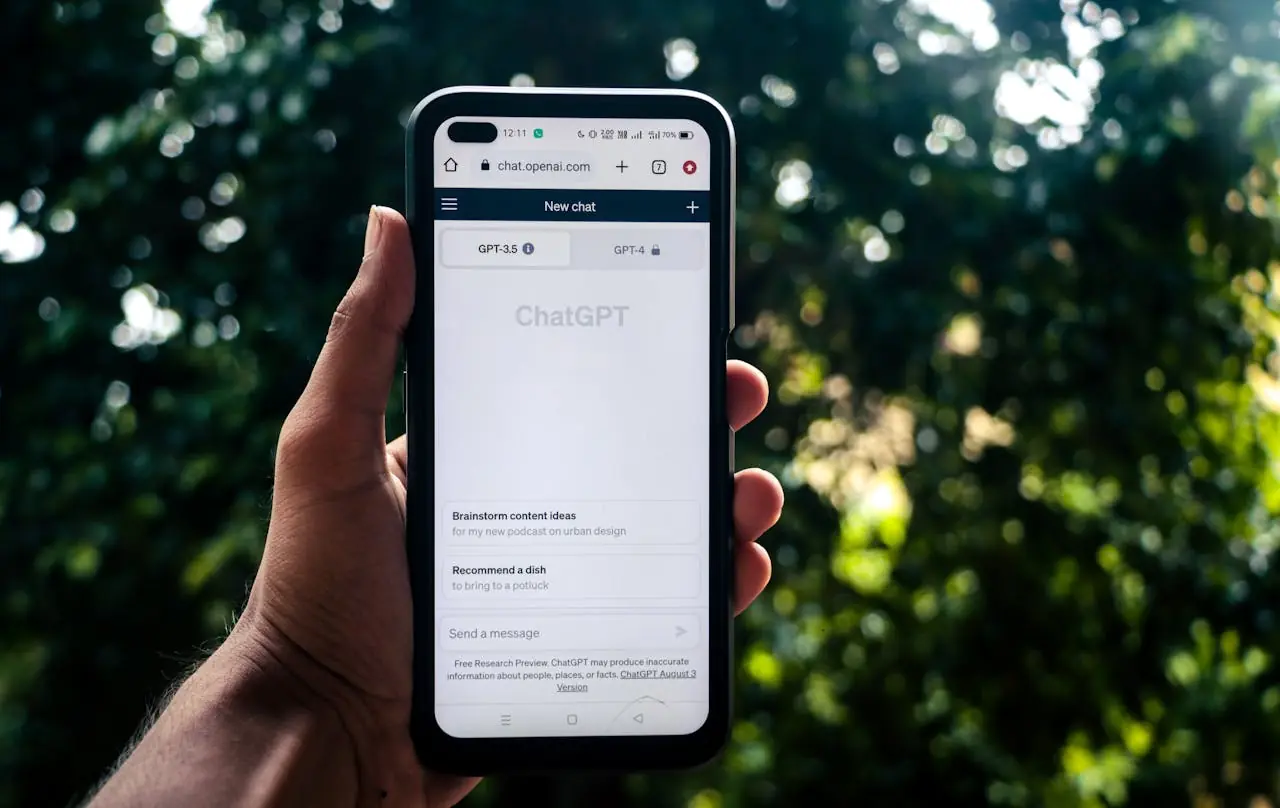by: Stefano Roberti
How to Choose a Multilingual PPC Partner Based on Your Global Operating Model
Choosing a multilingual PPC agency is a bit like choosing a travel companion for a round-the-world trip. You need a partner who knows where they’re going, speaks the local language, and won’t panic when the sat-nav switches to German halfway through Saxony.
If you’ve ever launched a campaign in a market whose language you don’t speak, you’ll know how quickly things can go sideways. A translated keyword looks innocent until you discover it’s slang for something you’d rather not sell. A headline that sings in English sounds oddly robotic in Italian. That’s why choosing the right multilingual partner is crucial, and why AccuraCast’s multilingual search experts work tirelessly, and recognise how to constantly avoiding those traps.
TL;DR
- A multilingual paid search agency should be fluent in both data and culture, be equal parts strategist and storyteller.
- It’s not enough to simply translate ads; they must transmit intent across borders, algorithms, and idioms.
- Look for an agency with linguistic depth, cross-platform fluency, and a proven ability to turn analytics into empathy.
- The best teams treat metrics as dialogue, not just data, interpreting what drives clicks versus conversions.
- They blend cultural intuition with technical precision, questioning every assumption and optimising through collaboration.
- Because the goal isn’t translation – it’s resonance – the right partner will represent your brand in a way that sounds local, feels human, and performs globally.
How your global operating model influences the choice of agency
Before diving into the criteria, it’s worth noting: not every global business evaluates agencies the same way. A brand that runs everything from one HQ will need different strengths from its PPC partner than one that lets local teams run the show. Broadly speaking, companies fall into three models, and each defines what “good” looks like.
Centralised model – One global multilingual agency covering all markets
Often seen with digital-first brands, DTC retailers, and global subscription players. Where central teams control everything, they may work with one global agency, a multi-national agency group, or a number of agencies in key regions or even in every single market. Working with agency groups / holding companies, or separate agencies in each market, requires a lot of resource managing the various agencies. For businesses with a fully centralised marketing ops model, working with one global agency is often the easiest route. For such businesses, the ideal digital agency is:
- Capable of managing multi-market offerings, campaigns, and reporting under one roof.
- Fluent in automation, feed ops, and rapid rollout.
- Efficient and scalable.
Think “one global provider to do it all.”
Hybrid (Hub & Spoke) model – Lead global agency sets the strategy and executes core marketing & brand campaigns, regions localise and execute specifics
Common in travel, retail, and big marketplaces. In recent years, businesses working with a hybrid marketing ops model often create a ‘global center of excellence’ or an in-house agency that works centrally. Branding and awareness is often controlled centrally, and local campaigns are either implemented top-down or left to each individual market / business unit. Here, a central agency often acts as a bridge, defining the playbook, governing consistency while empowering local teams. For hub & spoke models, the ideal central digital agency is:
- Expert in shared frameworks, feed sync, and governance.
- Flexible enough to let markets choose platforms and tweak creative.
- Open to communications both ways and with local agencies.
- Diligent about sharing best practice within the group.
Trust and communication matter here as much as tech.
Decentralised model – Local teams appoint different local agencies
Classic for CPG, franchises, or multi-brand groups. Conglomerates formed over decades of growth through acquisition, or companies operating in industries where regulation forces the creation of local business entities with their own P&L, often end up with a highly decentralised marketing operations model. Recently, such businesses have started centralising certain marketing functions, such as technology, data management, and tracking, to attain economies of scale and enable smaller regions to benefit from the expertise of the principle markets. The ideal digital agencies in such a situation are:
- Local businesses with native linguistic and cultural depth.
- Established firms with strong local relationships.
- Closely knit with the local team, but not always working at the same level as other regions.
Global alignment is nice to have, but local wins drive the business in the decentralised model. While this model has its merits, we have seen marketing leadership recognise the need for central control for core brand and marketing functions and gradually shift to some form of hybrid, hub & spoke model.
Evaluating your ideal multilingual PPC partner depends less on where they are, and more on how you operate globally.
How to identify the best multilingual PPC agency: key criteria
Once you’ve mapped your operating model, these are the universal traits that separate great multilingual PPC agencies from the rest.
Language is a living thing, and PPC lives or dies by intent. According to Think with Google, over 70% of consumers are more likely to buy from a brand that communicates in their own language. But here’s the catch, it’s not enough to be understood; you have to resonate.
My colleagues at AccuraCast once audited a campaign where “cheap flights” had been translated literally into half a dozen languages. Perfect translation, terrible performance. When native speakers rewrote the copy using local idioms (“vols pas chers” instead of “vols bon marché”), click-through rates jumped considerably.
A good multilingual PPC agency will have native-level linguists conducting regular multilingual keyword research, reviewing not just your keywords, but your tone, humour, and cultural references. They’ll understand that “exclusive offer” in English becomes “limited-time opportunity” in Japan , same meaning, completely different emotional trigger.
The key criteria you should look for include:

Understanding of global platforms
Google Ads may be the global market leader, but it’s not the only ad platform around. In China, Baidu holds the lion’s share of the market; in Russia, it’s Yandex; in South Korea, Naver. Each platform has its quirks. Bidding systems vary, ad extensions behave differently, and the competition landscape can change overnight.
Learn about the most popular search engines around the world.
Each platform has unique ad formats, bidding models, and regulations. For instance:
- Baidu requires all advertisers to verify business licences and Chinese hosting.
- Yandex values long-tail keywords and supports declensions in Cyrillic.
- Naver blends organic and paid listings into “Smart Blocks,” so CTR data behaves differently.
Ask your agency to show campaign examples from non-Google platforms. If all their case studies are Western, your international strategy will most likely be Western-market-focused too.
For brands managing multiple feeds and channels, it’s worth exploring our guide on developing a multilingual Google Shopping and Performance Max strategy, it shows how automation and localisation can work hand-in-hand across markets.
The best multilingual PPC agencies treat these platforms like dialects of a common language. They understand that what performs on Google may flop on Baidu, not because your product is wrong, but because the search ecosystem is built differently.
Look for evidence of in Google’s directory of accredited agencies, but also for deep experience with all platforms, including the new ones like. A good agency knows that learning a language isn’t enough, you need to understand the rules of the playground where you’re playing.
Expertise at measuring nuance
Numbers matter, impressions, CTR, CPA, etc. but numbers alone don’t tell the whole story. Harvard Business Review calls this “data-driven empathy”: using analytics to understand cultural behaviour, not just performance.
In one campaign across Spain and Mexico, identical ads performed drastically differently. The reason? Tone. Spaniards preferred a more formal address, while Mexicans responded better to warmth and humour. The data told us what was happening; cultural empathy told us why.
A good multilingual PPC partner will know when to read between the numbers, when a high bounce rate signals cultural mismatch rather than poor targeting, or when low engagement reflects local distrust of online offers.
During reporting calls, look for insights that mention behaviour, not just performance. “Your bounce rate is higher in Japan because humour underperforms in B2B”, that’s data cultural empathy.
Capability to adapt culturally, not just linguistically
To see how this principle scales beyond PPC, check out our guide on the role of localisation in driving international growth, it explores how brands use cultural adaptation as a competitive advantage.
Multilingual PPC isn’t just about translation and targeting; it’s about teamwork. Time zones, cultural expectations, local regulations, everything multiplies with each new market. The best agencies have systems that keep everyone aligned: shared dashboards, transparent reporting, and a clear chain of communication.
You’ll know you’ve found the right agency when they start asking questions about your brand, not just your budget. They’ll push you to clarify what “luxury” means to your German audience versus your Brazilian one. They’ll argue politely about whether humour works in your Japanese headlines (spoiler: it rarely does). That kind of friction is healthy; it’s the difference between a vendor and a partner.
Running multilingual campaigns is also about rhythm, knowing when audiences are awake, when holidays happen, and when to pause bids because the entire country is watching a football match.
Multilingual PPC reporting transparency
Finally, a multilingual PPC agency worth your budget won’t hide behind vanity metrics. They’ll tell you not only how many clicks you got, but how those clicks behaved differently in Italy versus Japan, and what to do about it next.
Look for agencies that build long-term optimisation frameworks: quarterly keyword reviews, cultural trend monitoring, A/B testing for local creatives, and ongoing language audits. Multilingual PPC is never “set and forget.” It’s alive, evolving with both data and dialect.
One global multilingual agency or many local ones?
It’s the classic international marketing organisational dilemma: one orchestra, or a band in every city?
Hiring a single, multilingual PPC agency keeps strategy consistent and reporting painless. One dashboard, one brain, one point of contact who actually knows what your left hand is doing in Lisbon while your right hand experiments in Tokyo. You get unified data, a shared tone of voice, and fewer “wait, who approved this translation?” moments.
But there’s a catch. A single global agency can sometimes drift into “headquarters logic”, optimising from London or New York and missing the subtle cues that make campaigns sing locally. Meanwhile, local agencies know their patch inside out. They’ll tell you when a holiday sale in Milan is doomed because everyone’s at the seaside, or when slang in São Paulo changed last week.
The sweet spot often lies somewhere in between: one global multilingual agency orchestrating strategy and structure, while collaborating with local experts who add cultural flair. The worst option? Letting ten independent agencies run wild without talking to each other. That’s not multilingual strategy, that’s chaos with invoices.

Scale without losing soul
Expanding into new markets is a balancing act between consistency and adaptation. Your agency should keep your brand voice intact while adjusting local nuances. That’s where experience shows. scaling doesn’t mean duplicating; it means translating strategy into local context.
A campaign that performs brilliantly in France might flop in Poland, not because of execution, but because of purchasing habits, payment systems, and digital maturity. The agency that thrives internationally is the one humble enough to admit it doesn’t know every answer, but curious enough to find out.
The same applies across industries, as explained in our article on international expansion for financial services, where localisation plays a decisive role in connecting global strategy with local trust.
What to centralise, what to localise
Not every function needs boots on the ground. Some thrive in the cloud.
Global strategy, analytics, PPC structure, and data governance are best managed centrally. That’s how you maintain brand coherence, budget control, and a single view of performance. Your central team should own your feeds, automation logic, and audience segmentation, the algorithm doesn’t care what time zone it’s in.
But creative execution, PR, events, local video, and anything that involves people actually experiencing your brand belongs locally. A great local PR agency will knows which influencer is authentic, what type of humour lands, and when “exclusive preview” sounds pushy.
Think of it as a global brain with local hands. Central teams set the tempo; local teams improvise with flair. The art is knowing when to hand the baton over, and when to gently take it back.
Whether you run everything from HQ, share control with regions, or let local markets lead, the best multilingual PPC agencies flex to your structure, not the other way around.
The takeaway: Identifying the right multilingual PPC partner for your marketing organisation
Identifying the “perfect” multilingual search advertising partner is less about finding a vendor and more about choosing a global team of experts who can think like a linguist, act like a strategist, and measure like a scientist.
Multilingual paid media agency evaluation checklist
If you want a multilingual partner firm who already speaks fluent conversion across continents, here’s a handy agency evaluation checklist:
- Native-language PPC experts in each of your target markets.
- Specialise in multilingual marketing.
- End-to-end PPC services.
- Proven results on Google and regional search engines (e.g. Baidu, Naver).
- Demonstrable experience generating international revenue for clients.
- Local keyword research and updating processes.
- Expert-level multilingual support.
- Understanding of cross-market analytics and reporting.
- Openness & flexibility to work with regional agencies, when needed.
- Transparent, modular pricing by language, market, and platform.
Pick your agency wisely. Working with a best-in-class multilingual PPC agency like AccuraCast won’t just help you advertise abroad. We’ll help you engage your prospects and customers at a human level, in every language that matters.
Register now
Connect with digital professionals, explore new marketing ideas, and learn from real-world success stories. Register today to receive your access details.
Recommended For You
- Dec 17, 2025
How to Increase International Brand Visibility in ChatGPT
International search is no longer just about rankings, keywords and…
- Nov 28, 2025
International SEO Checklist for 2026
Creating a website that performs across borders requires more than…
- Nov 20, 2025
SEO for Financial Services: 10 tips for higher rankings
Financial services companies operate in one of the most competitive,…












